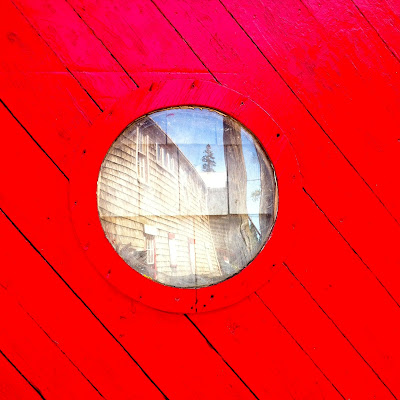Prior to Saturday the last time I spent any significant time
in a herring shed, I was “stringing herring;” standing in front of a seemingly
endless bin of fish and one-by-one poking a pointy stake in through the gill
and out through the mouth so they could be hung from the rafters in the
smokeshed. A full stick earned me something in the neighbourhood of a
dime. I remember it being tedious and
smelly and when I closed my eyes that night all I could see were herring heads
staring up at me. But I also remember sea breezes blowing through the shed, the sound of gulls and the kind of boisterous
camaraderie that springs up from sharing a day of manual labour. There weren’t many more days like this down
at “The Crick” (the tidal creek in Seal Cove).
The waning smoked herring industry went into deep decline in the 1990s
and is now just a memory.
So it was under very different circumstances 20 years later
that I returned to the Crick on Saturday for an afternoon with the Summer’s End Folk Festival artists at The Sardine Museum and Herring Hall of Fame. The museum is made up of a number of the old
buildings and the legacy of the late Michael Zimmer. (If you’re interested in the back story I
recommend going here where my friend Peter Cunningham captures it beautifully.)
The Sardine Museum and Herring Hall of Fame is not a museum
as we typically think of it. There are
no interpretative plaques, no faithful re-creations of ‘how things were.’ Instead it’s a rather eccentric and artful
jumble of artifacts; relics of a time when herring was king and the smell of
smoking fish (‘the smell of money!’ my dad would chime in) permeated our hair,
our clothes and our summers.
It’s magical place and the perfect spot to spend an
afternoon of music.
 | |
| Peter explains the museum's history to Liam Finney, Julie Doiron, Daniel Romano, Ruth Minnikin & Bry Webb | . |
 |
| Bry Webb, Ruth Minnikin & Liam Finney. |





No comments:
Post a Comment